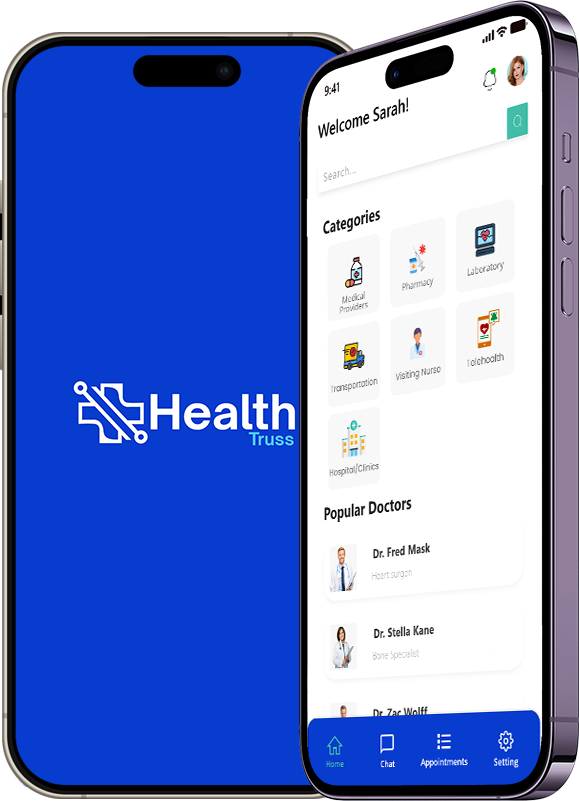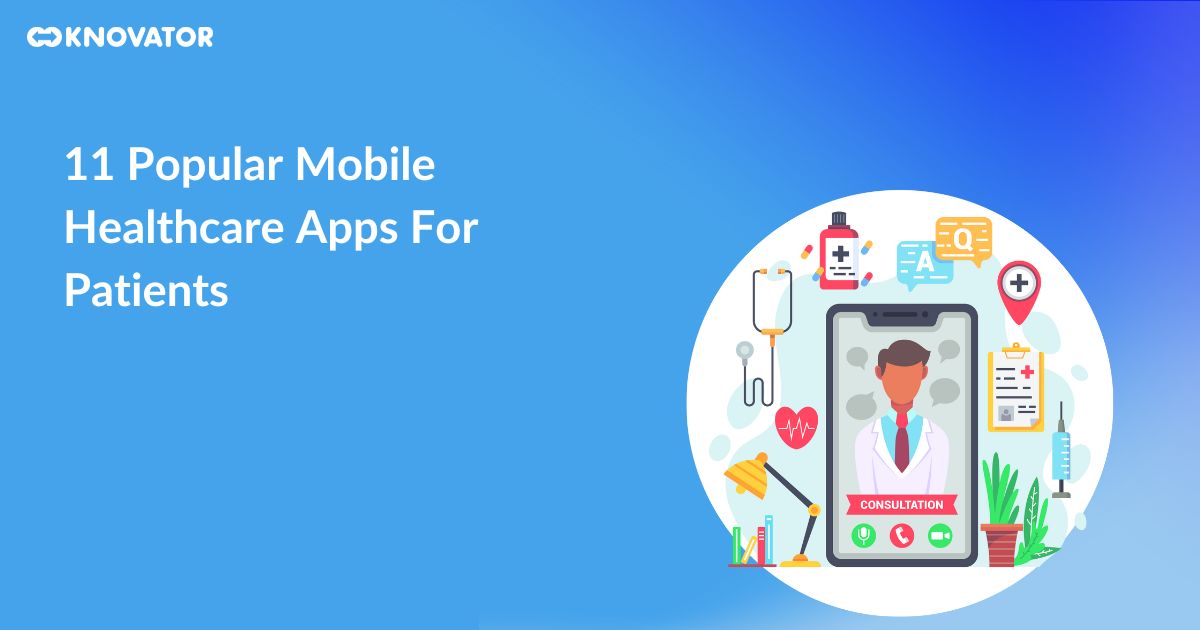The Influence of a Mobile App for Clinics on Workflow Performance and Patient Fulfillment
The Influence of a Mobile App for Clinics on Workflow Performance and Patient Fulfillment
Blog Article
The Future of Medical Care: Why Clinics Need a Mobile Application Today
As the healthcare landscape continues to evolve, centers face mounting stress to adjust to patient expectations for better benefit and availability. The combination of mobile applications can offer as a vital technique for enhancing patient engagement and enhancing procedures.
Transforming Client Expectations
As the landscape of medical care progresses, individual assumptions are undertaking a substantial transformation. Today's patients are significantly seeking benefit, availability, and customized treatment.
Additionally, individuals are becoming extra informed and encouraged, commonly researching treatments and conditions on-line prior to consultations. This heightened awareness is coupled with a need for transparency in healthcare processes, consisting of expense quotes and therapy choices. Because of this, carriers are forced to adapt by embracing electronic tools that improve the person experience.
The expectation for reliable and prompt communication has never been higher, with many clients taking into consideration responsiveness a crucial element of quality care. mobile app for clinics. In this progressing landscape, healthcare companies must identify these transforming expectations and leverage mobile applications to promote an extra patient-centric technique, making sure that they not only satisfy but exceed the criteria established by today's informed consumers
Enhancing Client Interaction
Mobile applications help with interaction in between clients and doctor, making it possible for real-time consultation scheduling, pointers for drug adherence, and direct messaging functions. These functionalities not only boost comfort but additionally develop a sense of accountability amongst individuals. Furthermore, mobile apps can offer educational content customized to specific needs, aiding patients better understand their problems and treatment choices.
The combination of gamification elements within medical care applications can also motivate people to participate in healthy and balanced behaviors, enhancing favorable way of life changes. By tracking progression and gratifying success, patients are more likely to remain devoted to their health and wellness goals. Eventually, enhancing individual interaction through mobile applications brings about improved health end results, greater person fulfillment, and a more joint medical care experience. Centers that prioritize this facet will likely see a significant impact on the quality of care provided.
Simplifying Center Operations
Enhancing clinic procedures is important for boosting operations performance and enhancing client treatment. The implementation of mobile applications can dramatically lower administrative problems, allowing doctor to concentrate extra on person communications. By automating visit scheduling, patient check-ins, and invoicing procedures, clinics can lessen wait times and enhance overall operational performance.
Mobile apps likewise facilitate real-time accessibility to individual documents, enabling healthcare specialists to make informed decisions rapidly. This immediacy not just boosts the top quality of treatment but additionally lowers the possibility of errors related to misplaced or outdated details. In addition, leveraging mobile technology supports a more organized approach to taking care of client follow-ups and treatment plans, guaranteeing that no crucial actions are overlooked.
In addition, mobile apps can streamline supply monitoring by providing clinics with tools to check medicines and supplies successfully. This permits for prompt replenishment and aids prevent disturbances in person treatment because of equip shortages. By integrating these functionalities right into their important link everyday operations, centers can develop an extra natural and reliable atmosphere, inevitably bring about boosted individual outcomes and contentment. Welcoming mobile technology is not just a trend; it is an essential evolution in the healthcare landscape.
Improving Communication Networks
Effective communication is often pointed out as a cornerstone of quality health care shipment. In today's hectic medical atmosphere, mobile applications can considerably enhance communication networks in between clinics, people, and medical care service providers. By incorporating mobile apps into their operations, clinics can facilitate real-time interactions, guaranteeing that people obtain prompt info concerning their consultations, examination results, and treatment strategies.
Mobile applications likewise encourage clients to connect straight with their medical care groups through safe and secure messaging attributes. This direct line of communication fosters a sense of involvement and permits immediate explanation of problems, which can result in better adherence to treatment protocols. In addition, press notices can remind patients of upcoming consultations or medicine routines, minimizing no-show prices and improving general wellness results.

Staying Competitive in Healthcare
In a quickly developing medical care landscape, organizations must prioritize advancement and adaptability to preserve an affordable edge. The assimilation of mobile applications right into healthcare solutions is no more optional; it is vital for facilities aiming to boost patient engagement, streamline procedures, and boost overall service shipment.
As people significantly rely upon digital platforms for wellness monitoring, facilities that stop working to take on mobile modern technology risk falling back. A properly designed mobile application can provide features such as consultation organizing, telemedicine assessments, and access to clinical documents, supplying patients with comfort and promoting loyalty.

Competitors are additionally investing in mobile services, so staying in advance needs continual a knockout post enhancement and remaining informed about technical innovations. Facilities have to not just apply mobile applications but additionally take part in normal updates and find improvements. Eventually, the effective assimilation of mobile technology will certainly differentiate forward-thinking healthcare companies and set the standard for patient-centric care in a digital world.
Final Thought
In verdict, the combination of mobile applications in facilities is vital to address the advancing landscape of individual assumptions. Inevitably, the critical application of mobile apps represents a crucial step toward supplying accessible and customized healthcare, thus satisfying the requirements of today's encouraged people.
Eventually, boosting client engagement via mobile applications leads to improved health and wellness outcomes, higher patient fulfillment, and a much more collective healthcare experience.Mobile apps also promote real-time access to client documents, making it possible for health care specialists to make informed choices promptly. In today's busy clinical setting, mobile applications can substantially boost communication networks between clinics, clients, and healthcare carriers.Mobile applications likewise empower patients to communicate directly with their medical care groups with safe and secure messaging features. Inevitably, the calculated implementation of mobile apps represents a crucial action toward delivering accessible and customized healthcare, thus satisfying the needs of today's equipped individuals.
Report this page